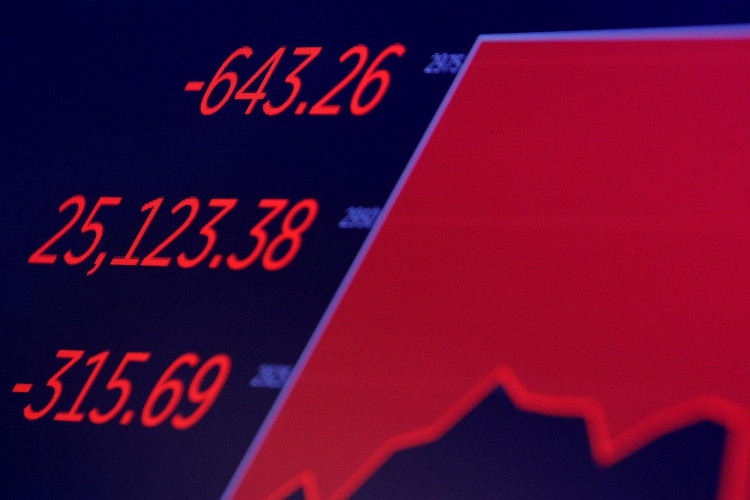The S&P 500 had lost a total of $2.69 trillion in market capitalization on Monday after it dipped a further 12 percent. The dip came unexpectedly given the Federal Reserve's drastic move to cut interest rates to near-zero on Sunday, the agency's second emergency rate cut in less than two weeks.
On Monday, major stocks and indexes in the United States experienced the largest drop since the "Black Monday" market crash of 1987. The measures imposed by the Trump administration and US lawmakers failed to restore order to markets with investors still clamoring to shift into safer assets and away from equities. Monday's crash was the third-largest daily percentage drop in US history.
The dip experienced by the S&P 500 sent it to its lowest level since December 2018. The index reached its record high on February 19 but has since dropped by 29.5 percent, representing a loss of around $8.28 trillion in less than a month.
Trading of the index was immediately halted just minutes after markets were opened on Monday. The index plunged by more than 8 percent, triggering the automatic circuit breaker mechanism that temporarily stopped trading for 15 minutes.
Among the S&P 500's 11 major sectors, the real estate sector (SPLRCR) was the weakest with a 16.5 percent drop. This was the largest one-day percentage drop in the sector since 2009. The SPLRCR was followed by the index's technology sector (SPLRCT), which fell by 13.9 percent. The most resilient sector during the day was the consumer staples sector which only sank by 7 percent.
Other major indexes also fell to new lows on Monday. The Dow Jones Industrial Average fell by a further 12.93 percent to 20,188.52, while the NASDAQ Composite dropped by 12.32 percent to 6,904.59. Trading for both indexes were also temporarily halted for 15 minutes on Monday as they hit the circuit breaker thresholds.
The weeks of continued decline in US stocks reflect the growing concerns of investors over the government and lawmakers' ability to mitigate the effects of the coronavirus outbreak on the economy. Confidence in the resilience of the markets was further decreased after the Trump Administration announced measures that halted most social activities for the next few weeks.
Establishments such as bars, movie houses, and restaurants were ordered to shut down in major cities such as Los Angeles and New York. Most economists are predicting that the country may be heading into a recession, a sentiment that was echoed by the country's president.





